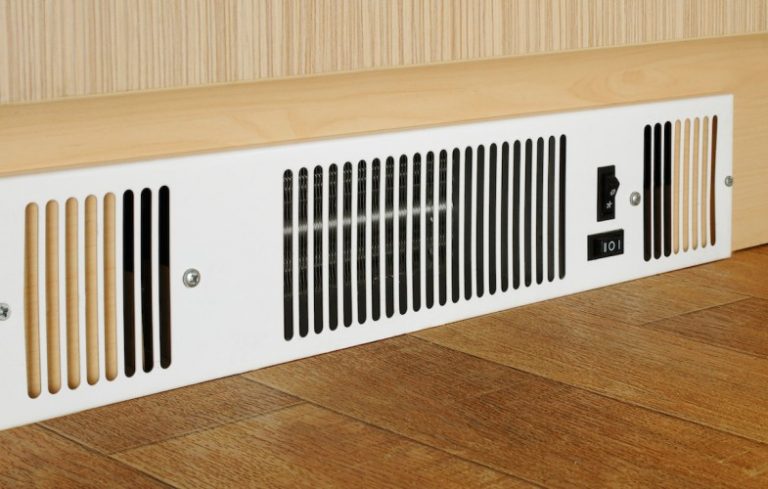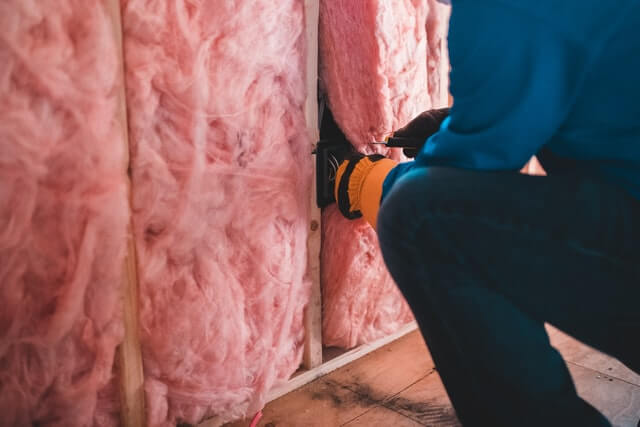Installing the right HVAC unit is one of the biggest decisions you will make in your home. The right system promises to keep you and your family comfortable for years to come and if you choose wisely, you may only have to make this decision once.
At Porch, we empower homeowners by providing the tools and confidence to hire great home improvement professionals for their projects. Make sure you’re prepared for every stage of your HVAC installation with our informative guide step-by-step guide.
If you’ve submitted a project request on Porch, expect to hear from a few contractors over the next 24-48 hours.
If you haven’t yet:
When the professionals call, these are the questions you should be asking:
- What is your company name, location and phone number?
This information allows you to vet the professional once you’re off the phone. This can be done by viewing their profile page on Porch (this will be listed on your project page) and by searching for reviews on other sites as well. - Are you and your subcontractors licensed, bonded and insured?
Bottom line is, if the contractor answers no to this question, you should not hire them. - When would you be able to start a project like mine?
This question will determine the availability of the professional. If you need an emergency installation but the professional can’t fit you in until next week, it might be worth speaking to a couple other professionals before requesting an estimate. On the other hand, if you need to arrange financial aid before your install, it’s best to know if the professional will be available at the time you need to start the project. - Would you be able to provide references for previous clients?
Like licensing and bonding, references are an extremely good vetting tool. If a professional cannot provide any references for clients, it’s not a good sign.
These are questions relevant to all HVAC projects but you may have additional questions that are important to you. Asking questions gives the contractor a better perspective of your priorities and will enable you to determine who is right for your project.
Check to see if a contracting license is valid in Charlotte HERE!
HVAC Options
Here’s the fun part, choosing the HVAC system that fits your lifestyle and budget. Take a look at pros and cons of the most popular HVAC units out there to make sure you’re making the right decision.
In Charlotte, consider a central air conditioner and furnace combination or an air conditioner and a heat pump. The latter will be more energy efficient for heating the home in the cooler months. The air conditioner will be necessary due to the humidity and hot temperatures in the warmer months.
Energy Efficiency
Some HVAC decisions you make will be determined by budget and personal preference. Energy efficiency is something that should be at the forefront of your mind when choosing your unit. A more energy efficient unit will have a pricier initial cost but will save you money on your monthly energy bills. Here’s how to determine how efficient your HVAC unit is and whether it’s worth investing in for your home.
Heating
Look for: AFUE
What is it? AFUE stands for, Annual Fuel Utilization Efficiency. The AFUE is the percentage of the energy used that is converted into usable heat. The higher the percentage, the more energy efficient, it’s as simple as that.
Cooling
Look for: SEER
What is it? SEER stands for Seasonal Energy Efficiency Ratio. The ratio is calculated based upon the cooling output divided by the energy consumed in the process. The SEER score ranges between 8-30 but by law a newer A/C unit cannot have a SEER score of less than 13. The problem with the SEER score, is its lack of context. The score doesn’t take into account the size of the home or the climate. Investing in a unit with a higher SEER score will likely save you a lot of money on fuel if you own a 10,000 sq ft home in Arizona but wouldn’t be worth the investment if you lived in a 700 sq ft condo in Massachusetts.
Look for: EER
What is it? You may have guessed it already, EER stands for Energy Efficiency Ratio. It differs from SEER because it bases its energy efficiency rating on how the unit would react to an outside temperature of 95 degrees, an inside temperature of 80 degrees and humidity of 50%.
Your HVAC professional will be able to advise on what rating will be most efficient for the size of your home and your budget.
Costs
If you’re purchasing your HVAC unit from a retail store or from the professional, you’ll already know the price of the unit itself. According to HomeWyse, here is how much to expect to pay for the rest of your HVAC installation:
Hauling – if your old unit needs to be removed and disposed of expect to be charged around $100.
Installation – this is dependent on the system, size and placement but expect to pay between $800-$1,500 for installation. A boiler will be more expensive, costing closer to $1,800.
Gas lines – if you need a new gas line run to your unit this should cost around $500-$700 for installation.
Ductwork – even if you have existing ductwork, this will have to be inspected. Expect to pay around $500 if the ductwork needs to be replaced.
Here’s some advice for How To Stay On Top Of HVAC Costs.
Lifespan
Replacing your HVAC system is expensive, so it’s good to know how long your investment is going to last. Here’s what This Old House advises is the average lifespan of HVAC systems:
Furnace – 15-20 years
Heat Pump – 16 years
Central Air Conditioning – 10-15 years
Boiler – 20-30 years
Getting estimates
We recommend that you get at least 2 estimates a HVAC project, preferably 3. This will give you the chance to gain different perspectives and advice on which unit is right for you. Here are some questions you should ask the professional when you meet for an estimate:
- What is the payment schedule and process?
- What is the estimated annual operating cost of your suggested unit and how do I maintain it?
- What do the customer reviews say about your suggested unit?
- How long do you predict my project will take to complete?
- What kind of HVAC system installation do you specialize in?
- Is there anything I can do to make the system more efficient?
A knowledgeable HVAC contractor will be able to inspect your current system and offer advice about what the best system for your home will be and how to maintain it.
Contract
After accepting a contractor’s bid for your project, make sure you get a written contract before any money is exchanged. The most important things to look for in your HVAC installation contract are:
- A payment schedule
- Details of materials used and their cost and warranty
- Permit information (if applicable)
- Warranty of workmanship
Remember: If you have a change of scope of the contract, it’s extremely important to draw up a ‘Change Order’ form.
Here’s more details on What to Include in a Contract with an HVAC Contractor.
Preparing for your project to start
After you’ve scheduled a time for your HVAC project to start, make sure you prepare your home by:
- clearing your room or yard of obstructions
- making sure your pets or small children are kept away from the installation
This will ensure that your home is safe for your family and the contractors.
When the project is complete
Once your project is complete, consider asking your contractor for recommendations on how to maintain your HVAC unit. Here are a couple of questions that you can ask the contractor about maintaining your HVAC unit:
- How often should I have a professional check my unit?
- How do I clean my air ducts myself?
- How often should I clean my air ducts?
If you’ve followed these steps to find a great contractor then you’re well on your way to a stress-free HVAC installation. At Porch, we understand that accidents happen. If any damage is caused to your property as a result of the professional we can help you make this right. Read about the terms of our Guarantee.
If you have any questions throughout your remodel, Porch’s Home Assistant Team will be happy to help. They can be reached via email at homeowner@porch.com or by phone at (855) 494-5972.




